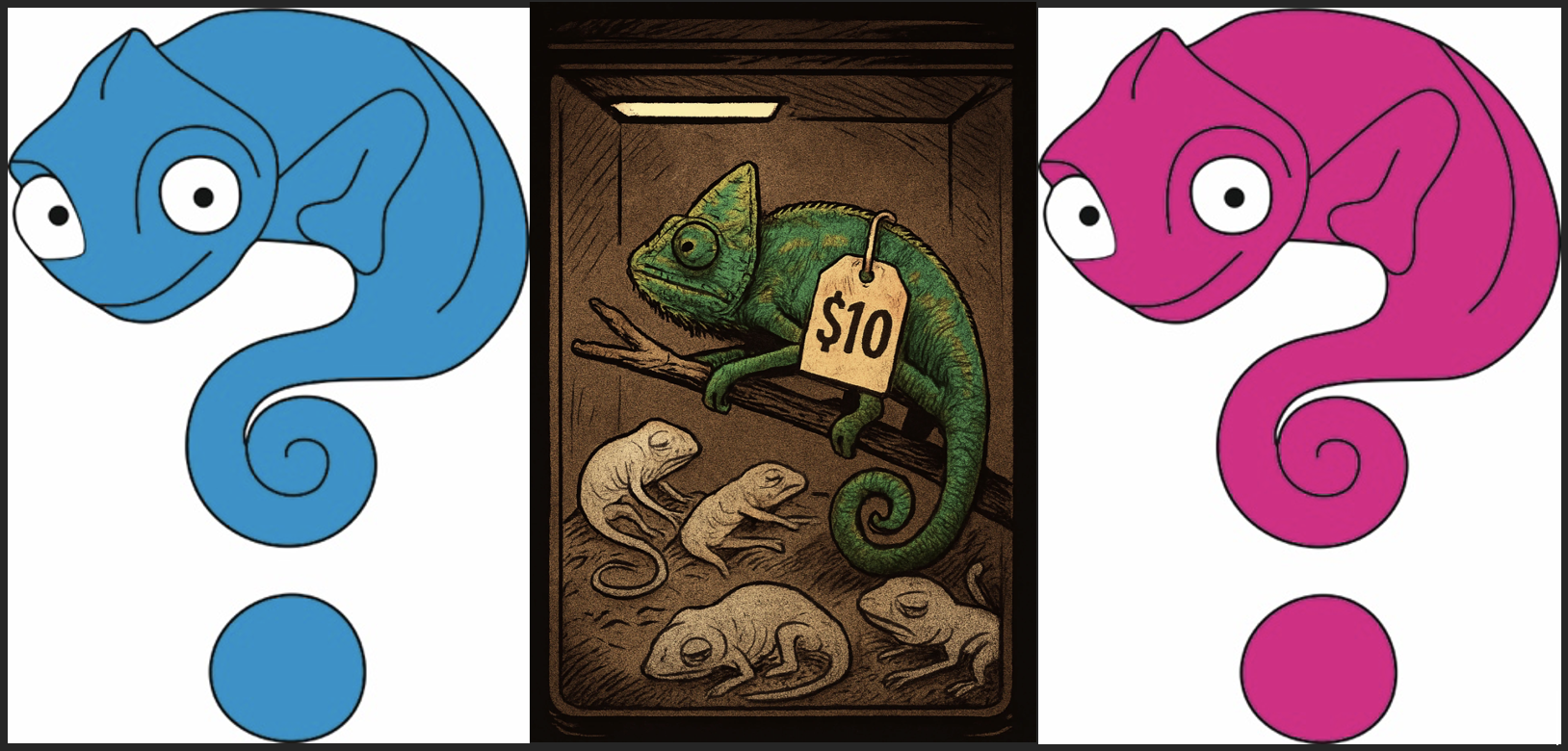Myth 14: “Chameleons Are Cheap, Which Is Good for Herpetoculture”

Busted — and dangerously so.
The low market price of chameleons is not a blessing. It's a curse. It fuels negligence, ignorance, and mass suffering. Cheap animals attract careless buyers, unethical breeders, and profit-driven chains that treat living beings as disposable merchandise. Chameleons of some species became a commodity...
The Brutal Economics:
Yemen chameleons (Chamaeleo calyptratus) can sell in wholesell for as little as:
Egg: $10
Hatchling: $10
Juvenile: $15
Subadult: $30
Adult: $50
Panther chameleons (Furcifer pardalis) cost roughly double to triple to multiple that, depending in lineage or local form.
Wild-caught in Florida (WCFL) Chamaeleo calyptratus specimens vary (the catchers get 12 USD per adult specimen bulk price), but the bottom line remains: the animal is often the cheapest part of the setup.
Why Big Chains Charge Much More:
Transport, equipment, and space rental costs.
But mostly: compensation for massive mortality rates, sometimes exceeding 50% before the animal even reaches the shelf.
The Hidden Horror Behind Cheap Prices:
Mass-exporting countries (e.g., Czech Republic) ship 1,000–2,000+ veiled chameleons per month.
To keep costs low, breeders:
Overcrowd babies in small enclosures.
Overheat them day and night (often >33°C).
Skip UV lighting entirely.
Spray them with vitamin A/D3 suspensions instead of proper nutrition.
Result: rubbery, pale, malnourished juveniles teetering on metabolic bone disease (MBD).
The Disposable Pet Mentality:
A proper chameleon enclosure costs $200–$500+.
The animal? Often $100 even in a store or less.
Owners think: "If it dies, I'll just buy another."
This mindset is lethal. And widespread.
The Misinformation Epidemic:
New keepers claim "thorough research" after a few Google searches or AI chats.
They rarely read to the end.
They rarely consult specialists.
They rarely pay attention to details: the attitude "this is good enough" is dominant.
When advised or even criticized, snowflakism appears often and offense is taken resulting from ignoring the advice.
The internet is flooded with recycled nonsense.
The result? Dead veileds, panthers, and jacksons littering the hobby like fallen leaves.
The Ugly Truth:
Rare species like Parsons' chameleons cost thousands.
And guess what? People care.
Price drives respect. Sadly, ethics and pride don't.
The average buyer understands one language: money.
The Hope:
There are good people. Ethical breeders. Knowledge sharers. Myth busters.
They fight the tide of ignorance with facts, care, and standards.